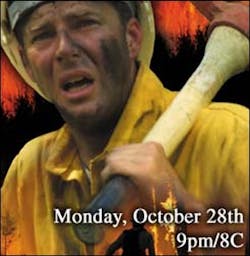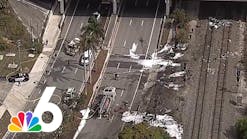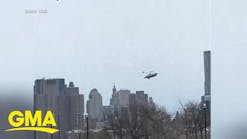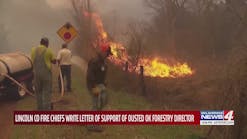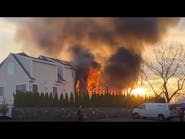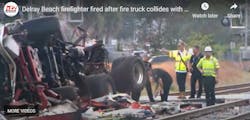History Channel Documentary Investigates the Storm King Mt. Tragedy
Fire On The Mountain is a riveting documentary investigating the death of the 14 firefighters killed in 1994 on Storm King Mountain in Colorado, one of the worst disasters in U.S. wildfire history.
The show, based on a book by investigative reporter John Maclean, will air on the History Channel on Monday, October 28, 9-11 p.m. It introduces viewers to the event with a dramatic reenactment of the tragic day and uncovers a story of "bureaucratic intrigue and mismanagement" that contributed to the firefighters' deaths.
Maclean is the son of author Norman Maclean, writer of "Young Men and Fire" about a 1949 tragedy called the Mann Gulch fire in Montana, one that claimed the lives of 12 firefighters. The elder Maclean, once a firefighter himself, wrote that book as a warning, "Mann Gulch must never happen again." But 45 years later the incident was repeated at Storm King.
The federal report on Storm King blamed the deaths on the firefighters themselves for having a "can-do" attitude which Maclean and many of the survivors found insulting and inaccurate.
"I wanted answers and I felt duty-bound to find them," Maclean says Maclean set out to answer three questions: 1) Why did the Bureau of Land Management wait three days before fighting the fire? 2) Why did the 49 firefighters on the mountain get fooled so badly by the fire, even though they recognized the similarities to Mann Gulch? 3) Why did the smokejumper in charge, Don Mackey, turn back after directing others to safety?
The documentary features stories from survivors, tearful interviews with family members, and explanations from investigators and administrative officials.
Maclean also talks to survivors of Mann Gulch to compare the two incidents. Although firefighting safety standards were issued after Mann Gulch in 1957, many of these were ignored at Storm King. Maclean discusses problems with the firefighter's strategy at Storm King, such as fighting the fire from an uphill position and not allowing for a change in conditions.
But numerous other problems are discovered as Maclean reveals the lack of communication between two BLM offices handling different aspects of the fire, and how a misguided BLM policy forced employees to hold back available resources despite firefighters' requests. We also learn about an important weather warning issued to all regional BLM offices, but never relayed to the firefighters at Storm King.
"All over western Colorado, crews are getting the message and pulling out. Don Mackey and the others on Storm King are the only ones who are not told what's coming," says local fire weather forecaster Chris Cuoco.
The documentary follows the fire's slow progress until finally, "Hell erupts." Helicopter pilot Dick Good saw everything as a wall of flame tore across the mountain and the firefighters ran for their lives. "My thought at that point was that no one is gonna survive that fire. This was the most terrible thing I had ever been through," says Good, a Vietnam veteran.
The production takes viewers though the last desperate moments as the firefighters are trapped in a U-shaped inferno. They can hear their gas cans and chain saws exploding behind them as they race up the steep mountainside. While some reach the limit of their endurance, stop and open their fire shelters, others keep going and make it over the ridge.
One survivor tells how he jumped to get away from the heat just as he crested the ridge, and was then slammed to the ground by the force of the fire. Officials said the only reason he lived is that he screamed as he went down, preventing him from inhaling the super-heated gases that killed those in the fire shelters.
Officials feared they had lost as many as 40 firefighters and it was hours before they got an accurate head count. The search for two of the bodies is a story within a story, Maclean says. Due to a lack of communication and lack of resources allotted for search and rescue efforts, it took 48 hours to locate the bodies and even learn whether they were dead or alive.
At the end of the show Maclean puts together the pieces of the puzzle to answer his questions, and to give some advice.
"One of the truths of history is that we learn from the big, cataclysmic events," Maclean says. "This is not war. Casualties are not inevitable and to be accepted. This is something different and there are times when you do step back."
